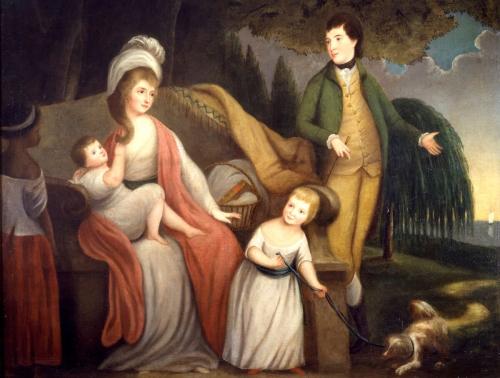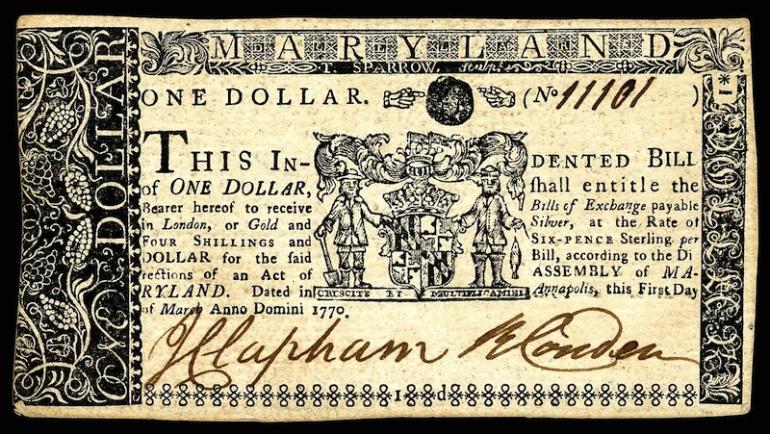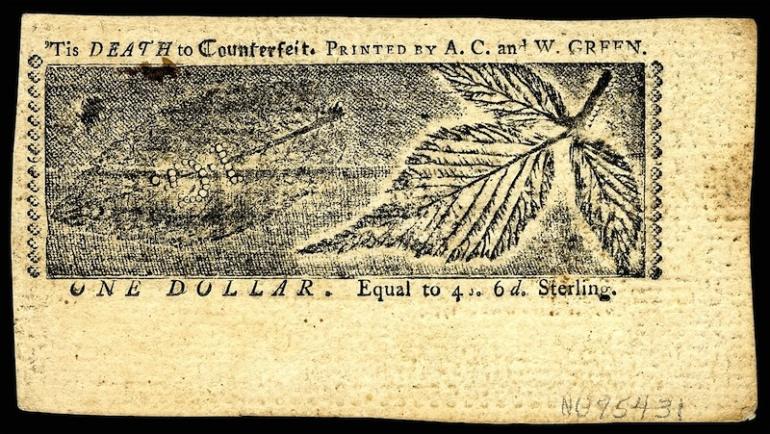The family of Alexander Contee Hanson with enslaved child by Robert Edge Pine, c. 1787. A member of the wealthy gentry class, Hanson was an attorney and served as a judge in Maryland. Courtesy of the Maryland Center for History and Culture.

Planter Class
In the Chesapeake Bay society of Maryland and Virginia, social prestige and political influence were determined mainly by economic power. Large-scale tobacco planters, high-volume merchants, and powerful lawyers made up the planter class of wealthy families. Although at least 80 percent of the free male population in this region could participate in the political process, they tended to leave these responsibilities to the wealthy. As a result, the planter class dominated local government, including the county courts and provincial assemblies. Given the absence of banks and the scarcity of paper money in the Chesapeake, the planter class had the capital and long-term credit to take advantage of new business ventures. The Carrolls of Mount Clare were part of Maryland’s planter class.


